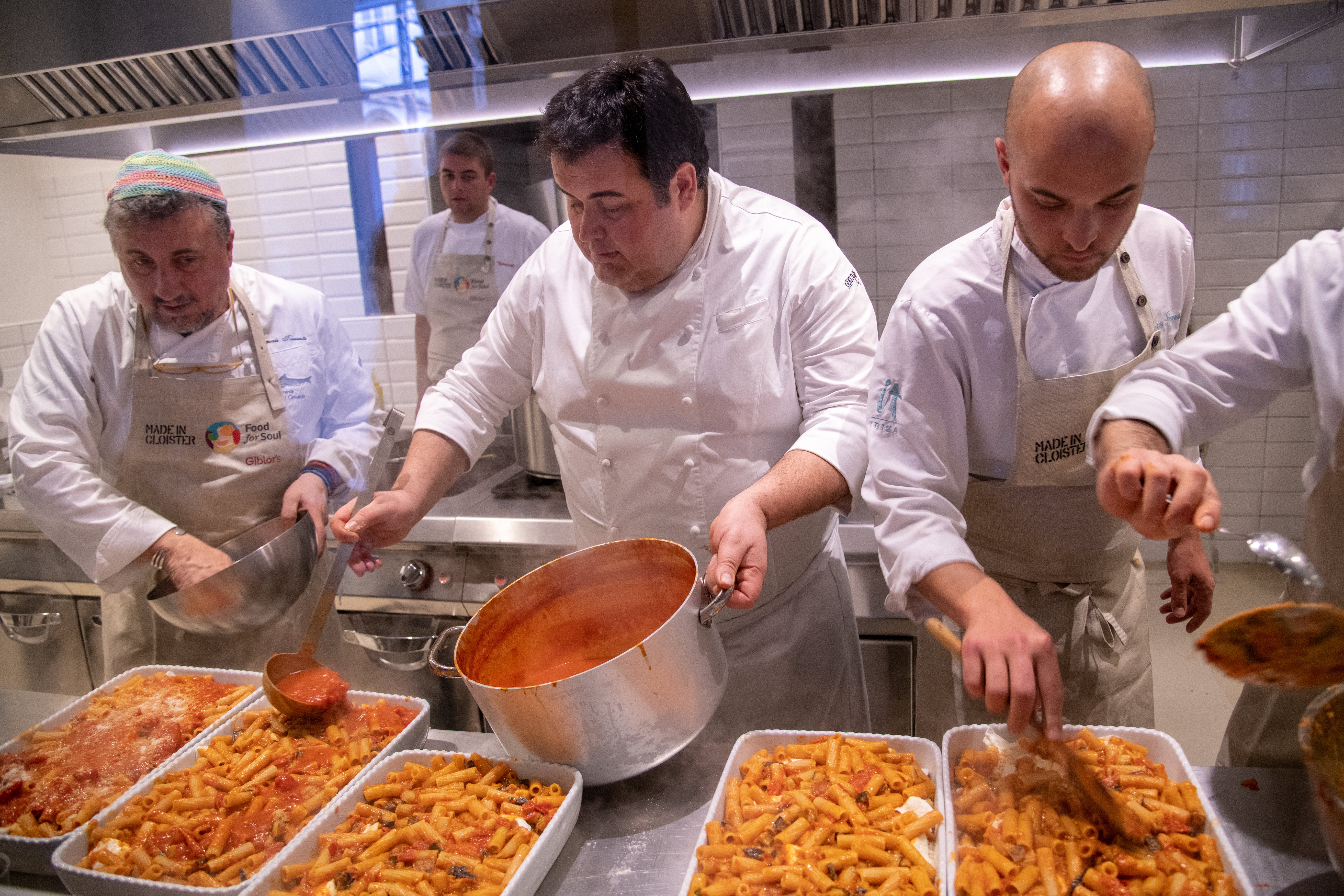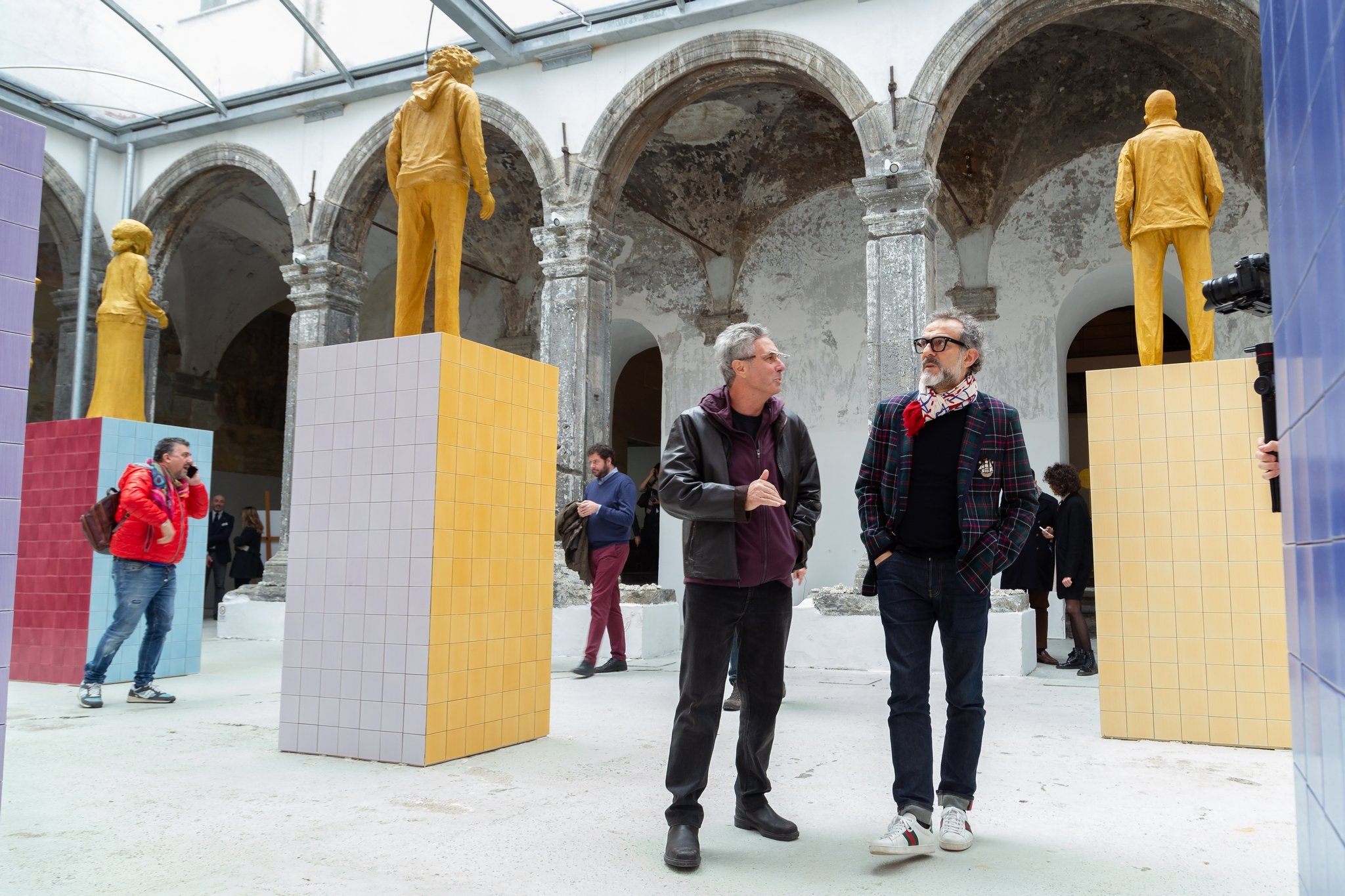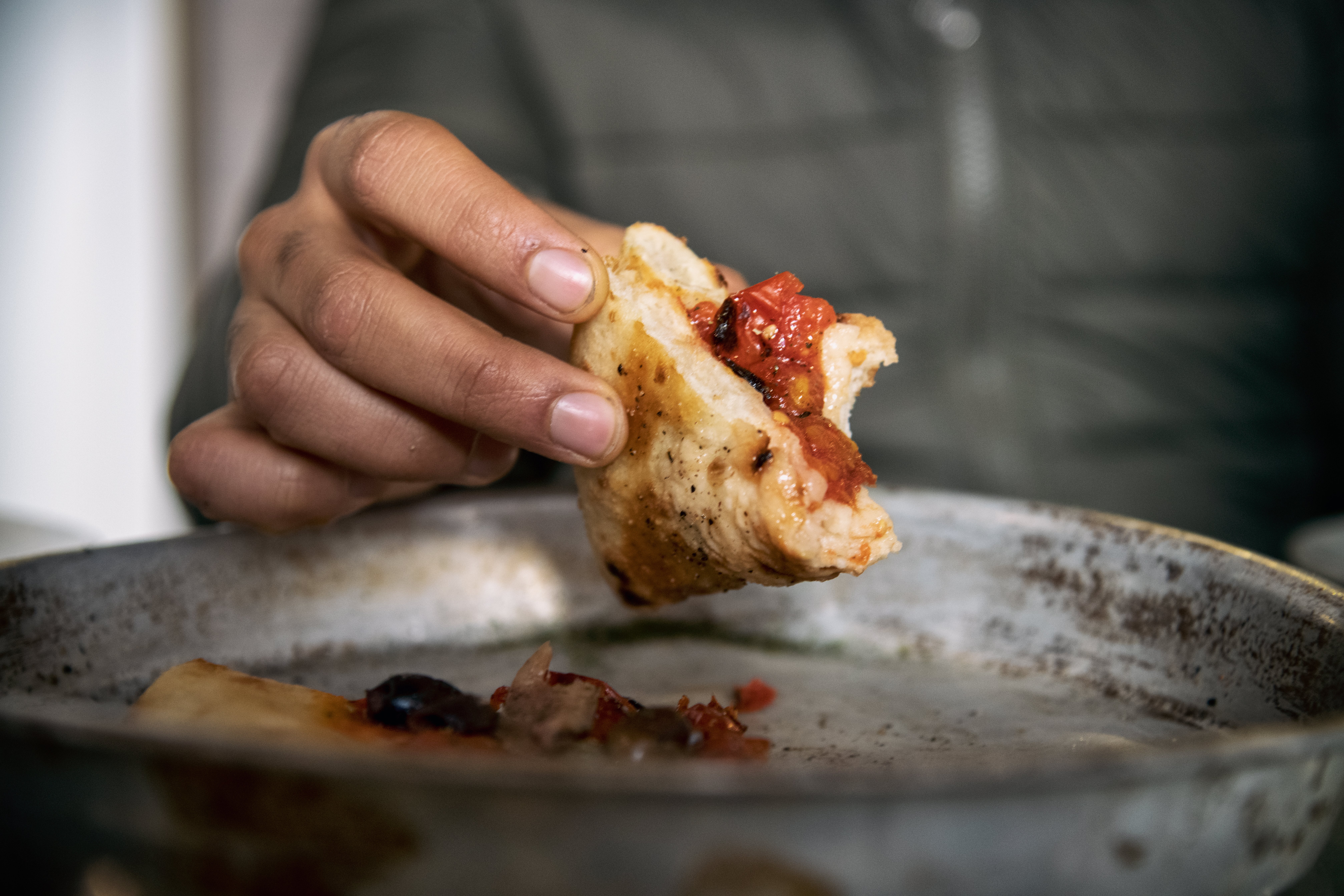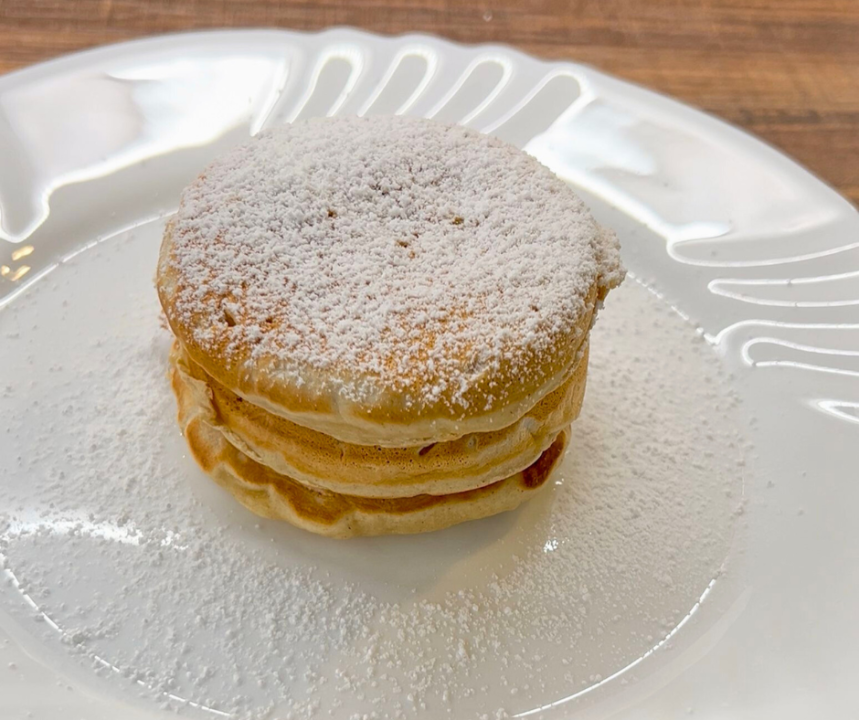Food for soul uses cookies strictly necessary for the proper functioning of the website, for its legitimate interest to enhance your online experience and to enable or facilitate communication by electronic means. To learn more about cookies please see our Cookie Policy
- About Us
- News and Stories
- News
- Social Tables Made in Cloister open their doors in the heart of Naples

Credits: Riccardo Piccirillo
On Sunday morning, in the beautiful cloister of the ex-convent of Santa Caterina a Formiello in Naples, everything is ready for the first service of the Social Tables Made in Cloister. The three long tables designed by artist Mimmo Paladino and created by local artisans are arranged under the cloister arches, carefully set up, and decorated with flowers. The voices of the guest chefs come through from the kitchen – chef Gennaro Esposito from the Restaurant Torre del Saracino in Vico Equense, chef Ciro Oliva, from the pizzeria Ai Tre Santi in Naples, and chef Pasquale Torrente, from the restaurant Al Convento in Cetara. The three chefs work with their brigades to create a rich, nutritious menu using only surplus ingredients. At one o’clock the doors open and a group of volunteers welcomes the guests, inviting them to sit down and make themselves comfortable.

Located in the area of Porta Capuana, the Social Tables Made in Cloister were developed thanks to the partnership between Food for Soul and the Fondazione Made in Cloister to achieve a common goal: welcoming individuals and families in situations of social vulnerability and offer them, every Monday night for dinner, a three-course menu prepared by some of the best chefs in the region. Historically known as one of Naples’ main gateways, the neighbourhood of Porta Capuana has a long tradition of welcoming and restoring travellers coming from outside Naples; a tradition that it’s perfectly aligned with the values that the project of the Social Tables Made in Cloister aims to promote.

Lunch starts with a vegetables and grains soup followed by Ciro Oliva’s mouthwatering pizzas, a heartwarming tray of baked pasta,‘cacciatora’ guinea-fowl with a side of eggplants and zucchini, and small fruit tarts. The chefs carefully plate each course while volunteers serve them at the tables, chatting with the guests about the menu. For a moment, in the beautiful setting of the cloister, it feels like a family lunch. “The food was amazing, but what really matters is that I felt like a Lord”, says one of the guests at the end of the lunch.

Designed to become a reference point for the whole community, the Social Tables Made in Cloister wants to promote a new model for social inclusion and hospitality through food, art and culture. By involving students from the Instituto Isabella d’Este Caracciolo in the management of the service and in helping the chefs in the kitchen, the project is also aiming to develop networks of local actors in order to create a more inclusive and aware community.
“Great things come from sharing knowledge and skills,” says Massimo Bottura, Founder of Food for Soul. “Thanks to Made in Cloister, Paladino, and the students and volunteers who have joined us, we will make this place of beauty even more beautiful”.
(Photographs: Riccardo Piccirillo)
News and Stories
Your Gift Will Help Us Make A Difference Today
Would you help us create a socially inclusive world where no food is wasted, communities are food sufficient and have the tools to thrive?



